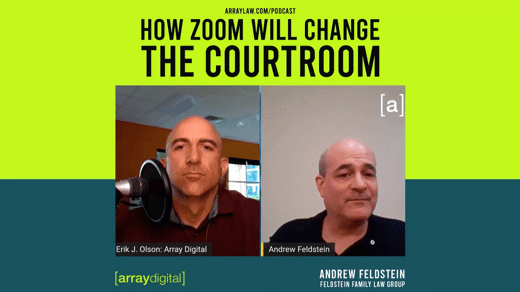Hello, I am Lucy D’Ercole with the Feldstein Family Law Group. Today, I would like to talk to you about urgent motions.
What is an Urgent Motion? Well, it’s probably best to start with how an urgent motion is different than a regular motion. A regular motion is brought only after the substantive issues in the motion have been conferenced. This means that no motion or supporting evidence may be served and no motion may be heard before a conference dealing with the substantive issues in the case has been completed. The judge at the Case Conference will also try to settle issues that could potentially be brought by way of a motion so that you do not spend time and money arguing a motion at a future date.
If you cannot resolve the issues of a potential motion at the Case Conference, then you can bring your motion. At that point, the motion’s judge will know you and your spouse have made some effort to settle the motion and could not reach an agreement. This tells the motion’s judge that she or he will have to make a decision, as there is no other way to potentially resolve what is being argued. A regular motion also has to be brought with at least 6 days’ notice to anyone affected by the motion. So how does an urgent motion differ from a regular motion? An urgent motion can be brought without the substantive issues being first conferenced, and without proper notice. Simply put, you can circumvent the rules if you can prove your motion is urgent.
With respect to WHEN should you bring an Urgent Motion; you need to ask yourself one simple question: are the issues of your motion so urgent that, if you followed the rules of first conferencing the issues and then giving notice, these steps would effectively eliminate the need to bring your motion at all? Basically, will following the rules of a regular motion result in something prejudicial or irreversible happening? In essence, you should bring an urgent motion without notice if the nature or circumstances of the motion make notice unnecessary or not reasonably possible. You should also bring an urgent motion if there is an immediate danger of a child’s removal from Ontario and the delay in serving a notice of motion would probably have serious consequences, or when someone is doing something or could do something that would really hurt you or a child if you waited for judicial intervention. Finally, you should also bring an urgent motion if you need something desperately and cannot wait, like a restraining order.
What should you do next? If you feel the need to bring an urgent motion, then the faster you do it the better. If you hesitate or wait then it looks like you did not think the issues of your motion were urgent, and most likely neither will the judge hearing your motion.
If you feel you need to bring an urgent motion, or if you have just been served with urgent motion materials, you may want to consider consulting or hiring a lawyer to either help you draft materials or argue the motion on your behalf.
Thank you for watching today. If you need more information and wish to schedule a free initial in-office consultation, please visit our website at www.separation.ca or contact our office at 905-581-7222.



